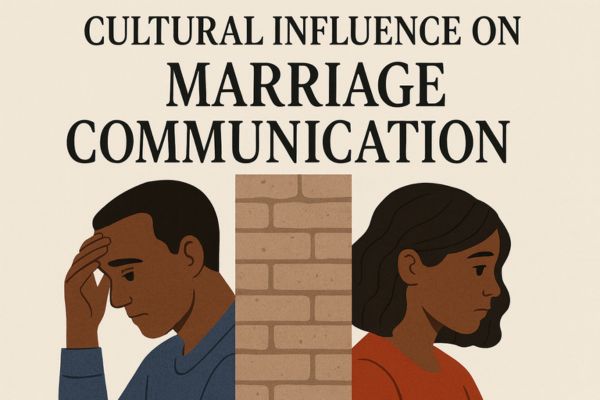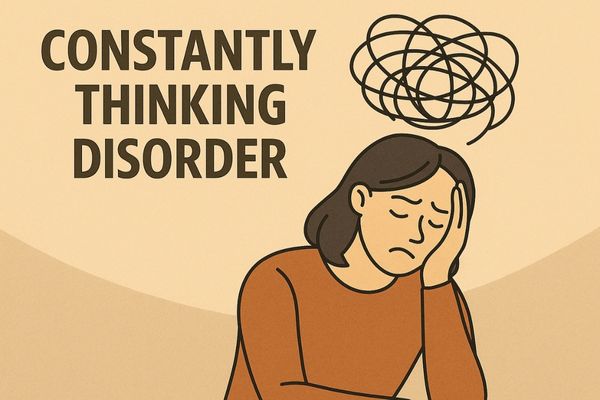Hurt and betrayal are emotions that can weigh heavily on the heart. How to let go of hurt and betrayal? It’s a question many of us ask when emotional pain and broken trust weigh us down. Whether it’s caused by a close friend, a family member, or a professional relationship, the sting of betrayal can feel overwhelming. But here’s the good news: you can heal from betrayal, let go of the hurt, and reclaim your peace of mind with the right steps.
In this blog, we’ll explore why betrayal feels so personal, why forgiveness is essential, and seven practical steps to let go of emotional pain. We’ll also look at seven Bible verses that provide faith-based guidance on overcoming hurt.
Letting go of hurt is like standing under a waterfall—allow the rushing water to wash away the pain, leaving you refreshed and free to move forward.
– Eli Divert
How to Let Go of Hurt and Betrayal: Understanding the Roots
I’ve often wondered if my friends truly see me as a friend or just an acquaintance. These thoughts came to the forefront during a situation where a close friend and I discussed a professional opportunity. As an insurance agent, I was confident in my ability to help when she mentioned a client struggling with health insurance costs. She seemed receptive, even promising to consult her upline to explore working together.
But days passed with no feedback. When I followed up, her response was vague, leaving me feeling dismissed. Questions swirled in my mind: Was I being pushy? Did I misread our friendship? The silence chipped away at my confidence, making me doubt not only the situation but myself.
Betrayal is deeply painful and leaves us questioning how to let go of hurt and betrayal without feeling broken inside. It often stems from a breach of trust—when someone’s actions or words don’t match what we expect. These expectations, shaped by our past experiences, make the pain feel personal.
We expect kindness because we’ve shown it and support because we’ve given it, so when those expectations aren’t met, the hurt lingers. Research on betrayal trauma explains that betrayal disrupts our basic need for safety and connection, leaving us feeling rejected. Understanding why betrayal hurts so deeply is the first step to learning how to let go of hurt and betrayal and begin to heal.
Expectations, however, can be a double-edged sword. They reflect our hopes but also set us up for disappointment. If I’d expected nothing, perhaps I wouldn’t have felt the sting of being overlooked so deeply. It’s not about lowering standards but understanding that others are imperfect, just as we are. This perspective doesn’t erase the pain but helps ease its burden.
Another incident added to this weight. I introduced a different friend to a couple interested in supplemental insurance, a product I don’t sell. I thought I was helping everyone. But during their presentation, her colleague implied that I had left their company after being trained, making it seem like I’d used the company and abandoned it. The misrepresentation felt like a slap in the face—especially since it affected my reputation.
When the couple confronted me, I shared the truth: I left because I wasn’t earning enough to support my family. They understood, but my trust in that friend was shattered. It felt like a betrayal, one that was hard to let go of.
Reflecting on these experiences, I realize that betrayal isn’t just about what’s done—it’s about the emotional aftermath. When trust is broken, it leaves you questioning not only the other person’s intentions but also your own worth. Was I too trusting? Did I misjudge them? These thoughts linger and can shake the foundation of relationships you once held dear.
Healing begins when we acknowledge that betrayal often says more about the other person than it does about us. Learning how to let go of hurt and betrayal allows us to reassess who deserves our trust while protecting our hearts without completely closing them off.
Expectations can sometimes lead to pain, but they also create opportunities for meaningful connections. By balancing caution with openness and trusting wisely, we can move forward. While the pain of betrayal may not vanish instantly, this mindset helps us build a stronger, more resilient heart.
Why Letting Go of Hurt and Betrayal is Essential for Peace
Holding onto hurt and betrayal is like carrying a heavy weight—the longer you carry it, the more it drains you. Learning how to let go of hurt and betrayal doesn’t mean excusing the harm or forgetting what happened. It’s about freeing yourself from the emotional burden so you can heal and move forward with peace.
When you learn how to let go of hurt and betrayal, you regain control over your thoughts and emotions. Forgiveness becomes an act of self-care, not a favor to the person who hurt you. It’s about choosing peace over resentment and moving forward without bitterness, freeing yourself to heal and find joy again.
The Bible reminds us that forgiveness is a path to healing. In the story of Joseph, he was betrayed by his brothers, sold into slavery, and left for dead. Years later, when he faced them again, he chose forgiveness over revenge. He said, “You intended to harm me, but God intended it for good” (Genesis 50:20).
Joseph’s story shows that forgiveness can transform pain into purpose, turning your trials into a testimony.
Practical Steps on How to Let Go of Hurt and Betrayal
Letting go of hurt and betrayal takes effort, but it’s a journey worth pursuing. Each of these practical steps will teach you how to let go of hurt and betrayal, guiding you toward healing and reclaiming your peace. Here are seven practical steps to help you move forward:
- Acknowledge Your Feelings
The first step to healing is naming what you feel. Are you angry, sad, or disappointed? Journaling can help you process these emotions and identify their root cause. Bottling up feelings only prolongs the pain. - Gain Perspective
Sometimes betrayal isn’t about you—it’s about the other person’s insecurities or circumstances. Ask yourself:- Was there a misunderstanding?
- Could this behavior reflect their struggles rather than my worth?
- Choose Forgiveness
Forgiveness is a decision to release bitterness. It doesn’t mean condoning the wrong or forgetting what happened. Pray for the strength to forgive, just as Jesus forgave those who crucified Him. He said, “Father, forgive them, for they know not what they do” (Luke 23:34). - Set Healthy Boundaries
Forgiving someone doesn’t mean you must allow them back into your inner circle. Protect your peace by setting clear boundaries. Even Jesus withdrew to solitary places to pray and regain strength (Luke 5:16). - Remember Your Worth
Your value doesn’t come from others’ opinions or actions. Scripture affirms, “You are fearfully and wonderfully made” (Psalm 139:14). When you focus on your God-given worth, you’ll be less affected by others’ betrayals. - Replace Negative Thoughts
Intrusive thoughts about betrayal can linger. Redirect them by focusing on positive actions or memorizing scripture. Try verses like:- “Cast all your anxiety on Him because He cares for you” (1 Peter 5:7).
- “The Lord is close to the brokenhearted” (Psalm 34:18).
- Seek Support
You don’t have to carry the burden alone. Talk to a trusted friend, counselor, or support group. Sharing your story can provide clarity and healing.
Faith-Based Insights on How to Let Go of Hurt and Betrayal
The Bible teaches us how to let go of hurt and betrayal with grace, showing us the power of forgiveness. Its lessons help us deal with the pain of being hurt and find peace again. Here are seven verses to guide you, reminding us that forgiveness isn’t just for others—it’s a gift that helps us heal and move forward:
- “Forgive as the Lord forgave you” (Colossians 3:13).
- “Love your enemies and pray for those who persecute you” (Matthew 5:44).
- “Do not be overcome by evil, but overcome evil with good” (Romans 12:21).
- “Blessed are the peacemakers, for they will be called children of God” (Matthew 5:9).
- “Be kind and compassionate to one another, forgiving each other” (Ephesians 4:32).
- “The Lord is compassionate and gracious, slow to anger, abounding in love” (Psalm 103:8).
- “Come to me, all you who are weary and burdened, and I will give you rest” (Matthew 11:28).
By embracing forgiveness and learning how to let go of hurt and betrayal, you can reclaim your peace and begin to heal. Betrayal can leave you feeling weighed down by resentment, but forgiveness isn’t just about others—it’s a gift to yourself that helps release the emotional burden.
The Bible reminds us that forgiveness brings grace and renewal, allowing you to move forward with a lighter heart. Letting go doesn’t mean forgetting the pain, but it means choosing to rise above it, reclaiming your peace, and not letting the betrayal define your future.
Moving Forward: How to Let Go of Hurt and Betrayal for a Peaceful Future
Letting go of hurt and betrayal is a process, not an instant solution. It requires patience, self-reflection, and faith. But when you choose to release bitterness, you create space for peace and joy to flourish.
Remember, forgiveness doesn’t mean weakness. It’s a courageous act that sets you free from the chains of resentment. As you walk this path, hold onto the promise of God’s rest: “Come to me, all you who are weary and burdened, and I will give you rest” (Matthew 11:28).
Share Your Story & Stay Connected
Have you ever struggled with thoughts that won’t stop or feelings that weigh you down? Share your story in the comments below—your words might help someone else feel seen and understood.



